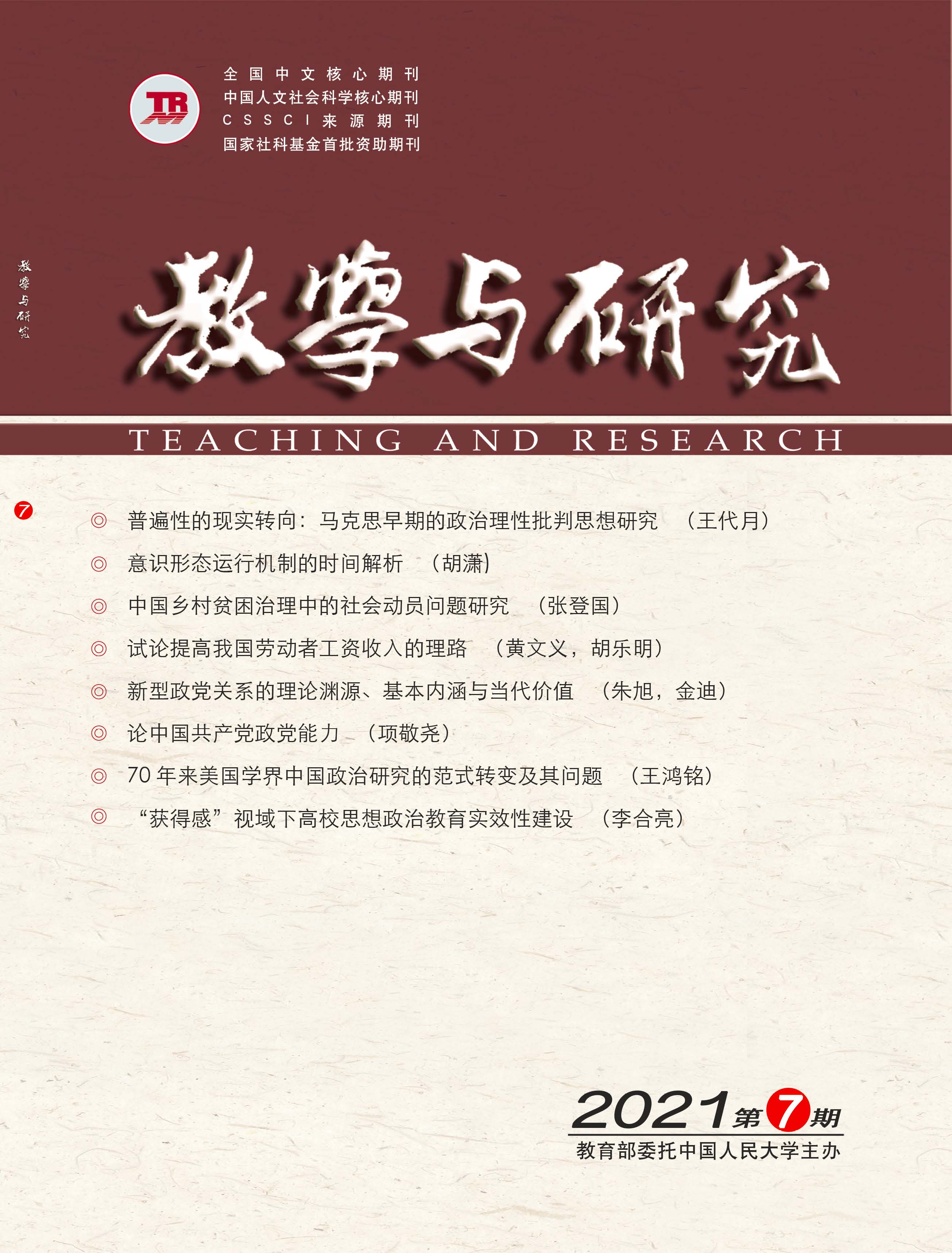|
|
On the Capacity of the Communist Party of China
Xiang Jingyao
2021, 55 (7):
55-66.
The capacity of a political party does not come naturally. It is resulted from the combined effect of multiple factors, including the representativeness of the political partys interests, the effectiveness of its theory, its practical reason, and its innovativeness. The capacity of the Communist Party of China (CPC) reflects a combination of both the soft and the hard power. It has the soft power in spiritual, value, and cultural dimensions, as well as the hard power in terms of organization, mobilization, and implementation. Overall, the capacity of the CPC mainly involves the following four aspects. First, in terms of “partypolitics”, the CPC enjoys super strong political leadership: it can achieve centralized and unified leadership, and maintain orderly state governance. Second, in terms of “partytheory”, the CPC plays a prominent role in ideological guidance: it is able to create and maintain a practical consensus between party members and the masses in ideological and ideational dimensions, and unify the will to act. Third, in terms of “partymass”, the CPC has a strong grassroots mobilization ability, enabling it to effectively marshal the power of the masses and achieve strong cohesion within the party and across the country. Fourth, in terms of “partysociety”, the CPC maintains a strong social appeal and can mobilize the broadest social forces to commit themselves to the undertaking of socialist construction. The CPC has the courage to promote selfrevolution, and unceasingly strengthens its exceeding political party capacity. This political party capacity provides guidance for and fundamental support to the state capacity, and serves the overall arrangement of building a socialist modern country in an allround way.
Related Articles |
Metrics
|



